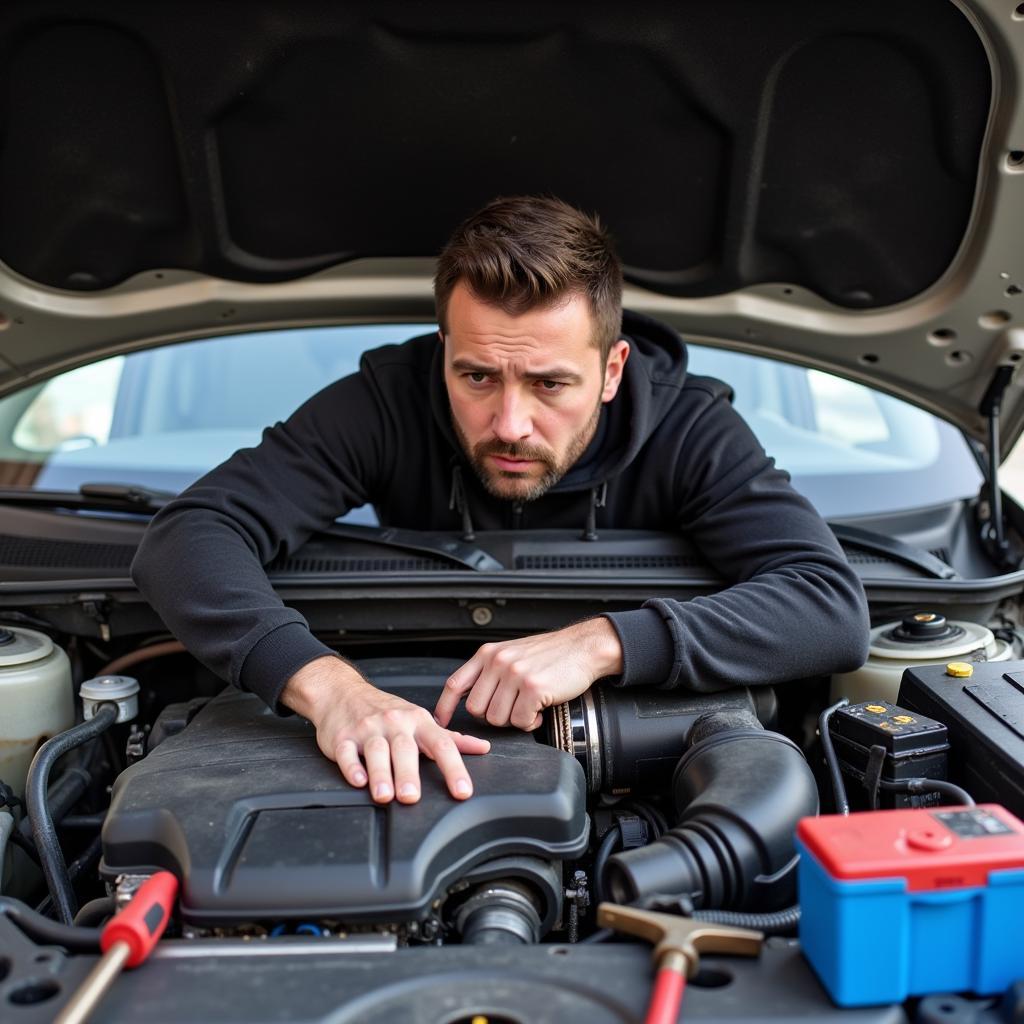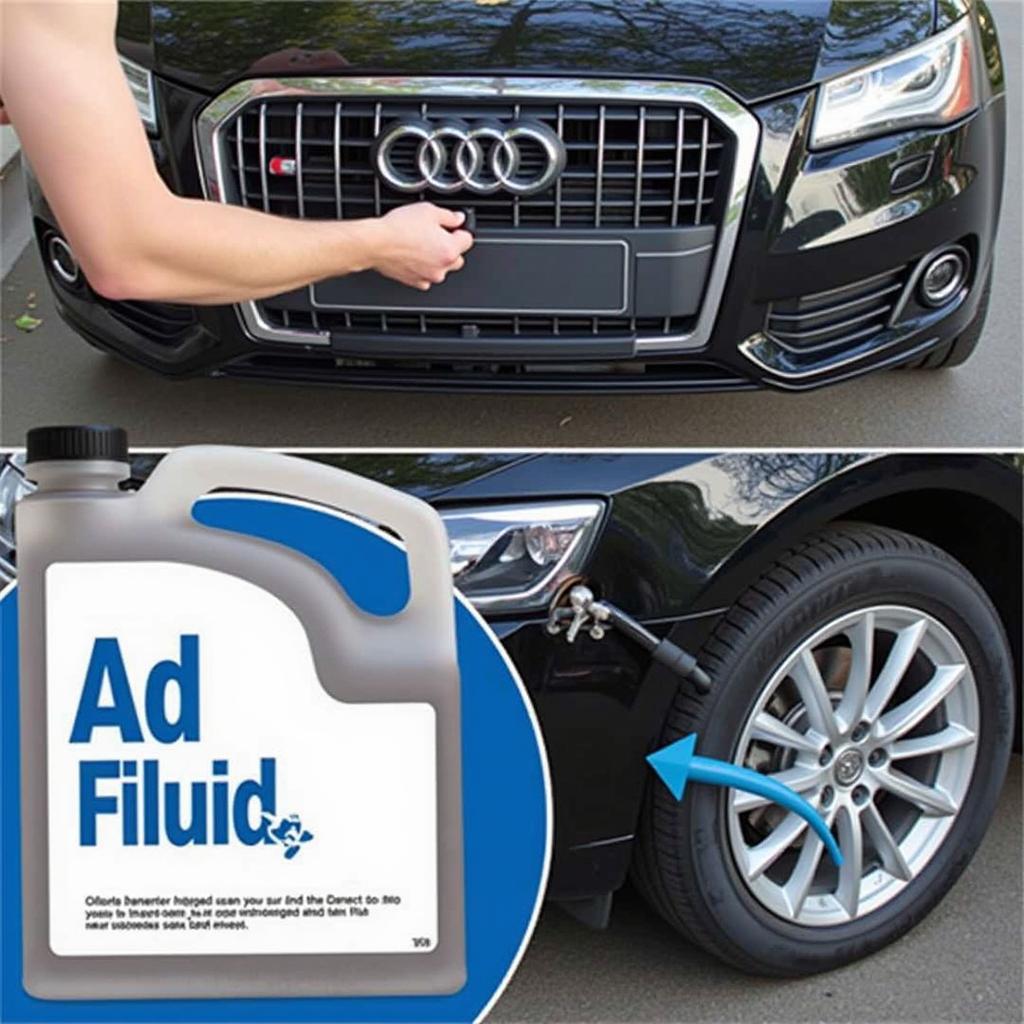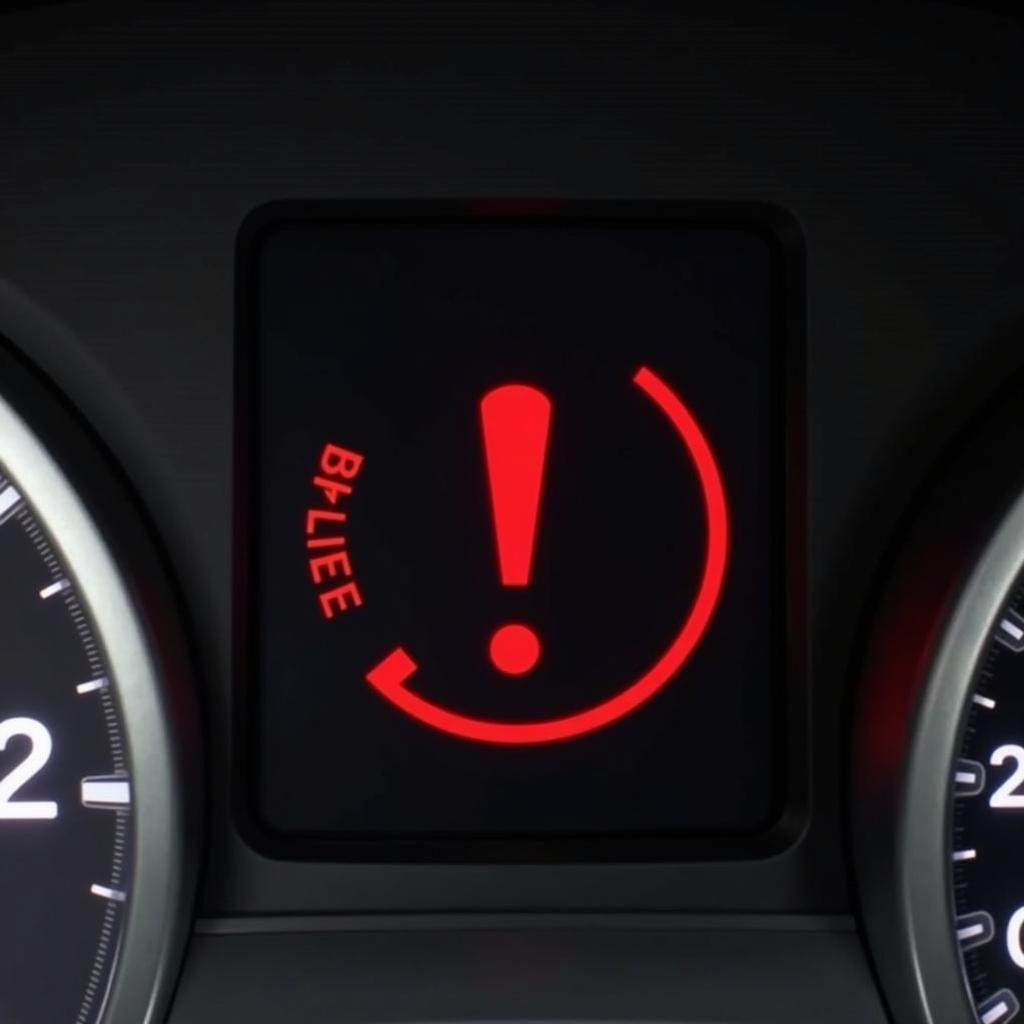You’ve replaced both the battery and alternator, but your car still won’t start. This frustrating situation leaves many drivers scratching their heads, wondering what could be wrong. Don’t worry, you’re not alone. This article will guide you through the potential causes and solutions when your car won’t start even after replacing the battery and alternator.
 Car Won't Start After Replacing Battery and Alternator
Car Won't Start After Replacing Battery and Alternator
Why Your Car Still Won’t Start After Replacing the Battery and Alternator
Several factors can cause this issue, even after seemingly addressing the most common culprits. These include problems with the starter, ignition system, fuel system, or even parasitic drains. Let’s explore each possibility.
Checking the Starter Motor
The starter motor is responsible for cranking the engine. A faulty starter can prevent the engine from turning over even with a new battery and alternator. Try tapping on the starter with a wrench while someone tries to start the car. If it starts intermittently, the starter is likely the problem.
Inspecting the Ignition System
The ignition system provides the spark needed to ignite the fuel. A faulty ignition switch, coil, distributor, or spark plugs can prevent the engine from starting. Check for a spark by removing a spark plug, connecting it to the spark plug wire, and grounding it against the engine block while someone tries to start the car. You should also check the battery warning sign in car. If you don’t see a spark, there’s a problem within your ignition system.
Examining the Fuel System
The fuel system delivers fuel to the engine. A clogged fuel filter, faulty fuel pump, or bad fuel injectors can prevent the engine from getting the fuel it needs to start. Listen for the fuel pump priming when you turn the key to the “on” position (without starting the engine). If you don’t hear it, the fuel pump may be faulty.
Identifying Parasitic Drains
A parasitic drain occurs when an electrical component continues to draw power even when the car is off. This can drain the battery overnight, preventing the car from starting. Use a multimeter to check for parasitic draws by disconnecting the negative battery cable and connecting the multimeter in series with the battery and cable.
“A common mistake is assuming the new battery and alternator are the only possible causes. Always check the basics, like the starter and ignition system,” says John Miller, a certified automotive technician with over 20 years of experience.
What to Do When Your Car Won’t Start
- Check all connections: Ensure the battery terminals are clean and tight.
- Test the battery voltage: A fully charged battery should read around 12.6 volts.
- Inspect the alternator output: A functioning alternator should produce around 14 volts when the engine is running.
- Check for diagnostic trouble codes (DTCs): Use an OBD-II scanner to retrieve any stored codes that could pinpoint the problem.
“Don’t overlook the simple things. Loose connections or a blown fuse can cause starting issues that are easily fixed,” adds Susan Davis, an electrical engineer specializing in automotive diagnostics.
Conclusion
Even after replacing the battery and alternator, several other issues can prevent your car from starting. By systematically checking the starter, ignition system, fuel system, and electrical system for parasitic drains, you can pinpoint the problem and get your car back on the road. If you’re unsure about any of these steps, consulting a qualified mechanic is always recommended. You may also want to learn about what causes a bad battery cell. Sometimes, a brand new battery car still wont start due to other issues. Knowing what to do if you have a car battery 11 volts wont start is also useful. Finally, consider upgrading your car audio system with a dab car radio with bluetooth for a more enjoyable driving experience once your car is running smoothly. Remember a properly functioning vehicle is crucial for safe and reliable transportation.
FAQ
-
Can a bad starter cause my car not to start even with a new battery and alternator? Yes, a faulty starter can prevent the engine from cranking even with a new battery and alternator.
-
Could a faulty ignition system be the reason my car won’t start? Absolutely, issues within the ignition system, such as a bad ignition switch or coil, can prevent the engine from starting.
-
How can I test if my fuel pump is working correctly? Listen for the fuel pump priming when you turn the key to the “on” position. If you don’t hear it, the fuel pump may be faulty.
-
What are parasitic drains, and how can they affect my car’s starting ability? Parasitic drains are electrical components that draw power even when the car is off. They can drain the battery overnight, preventing the car from starting.
-
What should I do if I’ve replaced the battery and alternator, but my car still won’t start? Check the starter, ignition system, fuel system, and for any parasitic drains. If you’re still unsure, consult a qualified mechanic.
-
How can I check for parasitic drains myself? Use a multimeter to test for current draw with the car off and the negative battery cable disconnected.
-
Is it possible that the new battery or alternator I installed is faulty? While less likely, it’s possible. Have them tested to ensure they are functioning correctly.



